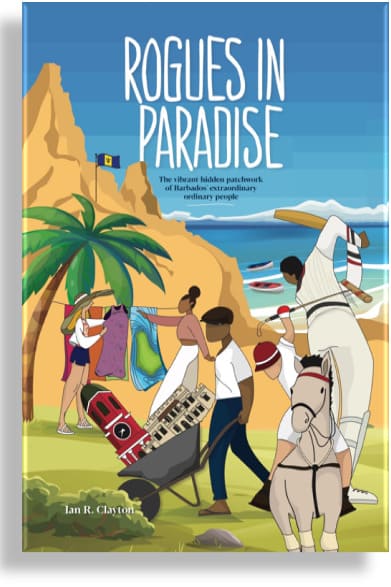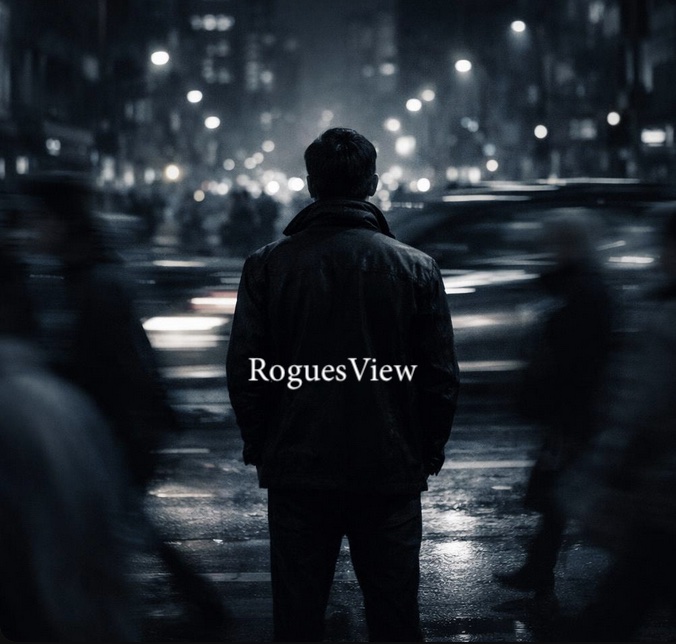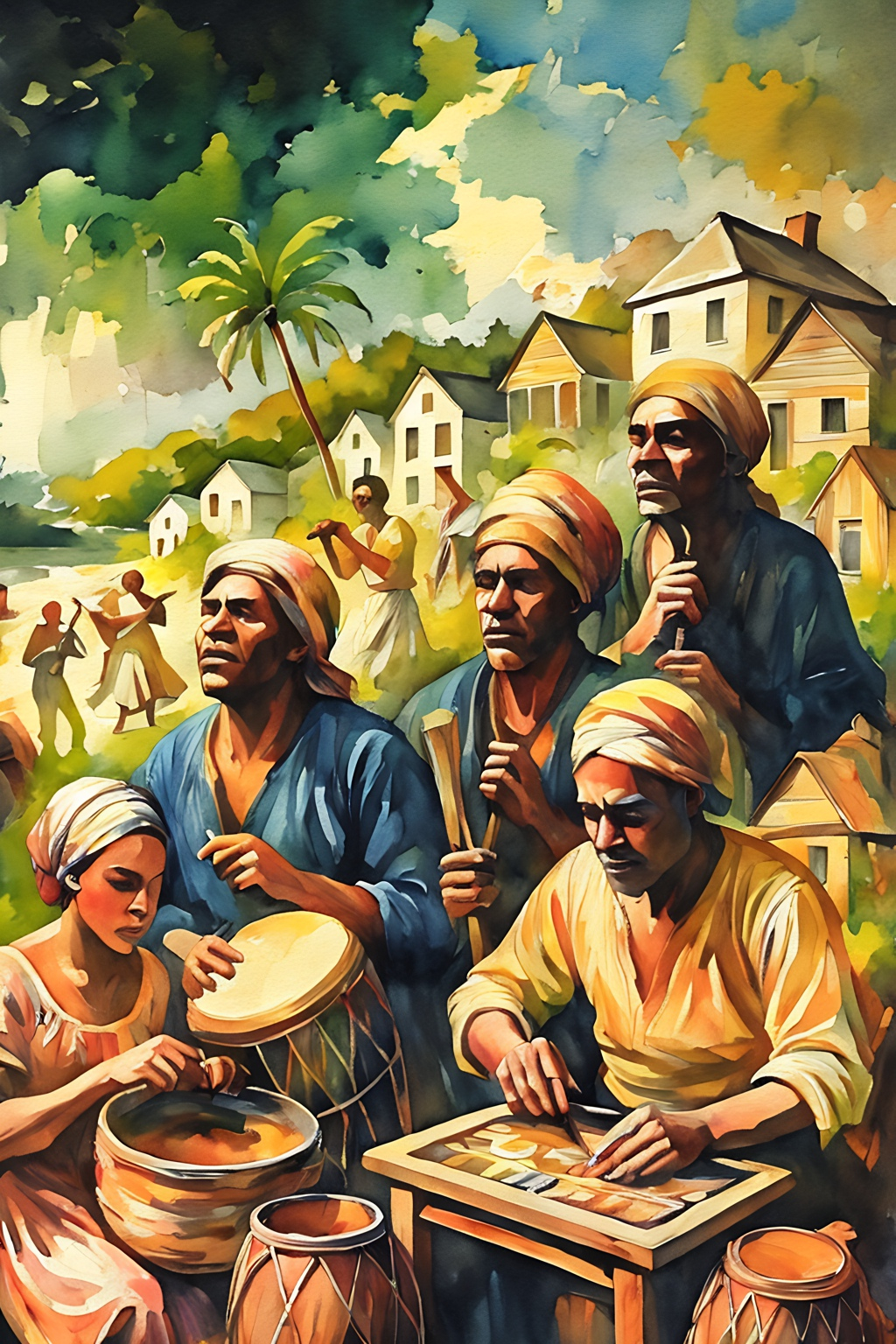What We Mean by Soul Rebels – From Chains to Chords
When we talk about soul in this series of RoguesCulture- Rebel Music, we’re talking about more than a genre—we’re talking about a spirit. Soul music is a powerful tradition that emerged in the late 1950s and 60s, deeply rooted in gospel, rhythm & blues, and African-Caribbean and American identity. It’s emotional, raw, and unforgettable—defined by soaring vocals, call-and-response, and messages of both heartbreak and hope. But in RoguesCulture: we use soul more broadly. Soul is the sacred defiance of Negro spiritual and Gospel. The storytelling of folk. Twang of country. The protest fire of Reggae. And even the uncredited influence on hillbilly music.
Soul is the music of survival, forged in slavery, shaped in the Caribbean and the American South, and carried forward by artists who turned struggle into sound. It’s not just a style—it’s a legacy. Each blog and podcast episode explores how this soul, born of pain, joy, resistance, and rhythm, rebelled against silence and reshaped global culture, one genre at a time.
In this edition of RoguesCulture: Music Rebels, we go beyond drums, punk, blues, jazz, reggae and the classical to uncover the rebel spirit at the heart of Negro spirituals, gospel, soul, folk, and country—genres all shaped by what we call the rebel soul.
They are Soul Rebels of the Music Rebels Soul.
These sounds didn’t grow in isolation. They shared stories, rhythms, and raw truths across racial and cultural lines, creating a powerful, interconnected soundtrack of resistance and identity.
Where RoguesCulture & Rebel Soul Begins
From the hush of plantation fields to the roar of soul and country stages, these are the stories of America’s original music rebels—Black voices who turned pain into power, and rhythm into revolution.
This episode of RoguesCulture traces how soul music has influenced countless genres and reshaped culture. In 1970, Bob Marley’s Soul Rebels album paid tribute to that rebel spirit—stripped-down and raw, with guitar, bass, drums, and organ, but no horns or embellishments. Years later, the Soul Rebels band carried that legacy forward, blending traditional New Orleans brass with funk, soul, hip-hop, jazz, and rock.
But soul is more than a genre—it’s a movement born of struggle and the black experience. It reaches back to the songs of slavery: Negro spirituals, gospel, protest anthems, and branches into country & western, folk music, cowboy ballads, and even the cultural expressions of hillbilly and redneck traditions.
The Hidden Legacy of Black Soul Soundtrack
When people think of American music, they often picture cowboy ballads, country love songs, or gospel choirs echoing from church pews. But what if we told you that many of these the banjo twangs, the soulful cries, the driving rhythms—can be traced back to one root: African traditions carried through the Black experience in the Americas and the Caribbean? From West African rhythms to the sorrow songs of slavery, from Caribbean chants to Southern gospel, this legacy shaped American music and the heartbeat of global culture.
This edition of RoguesCulture: Rebel Music, goes beyond blues and jazz to uncover the rebel spirit at the heart of Negro spirituals, gospel, soul, folk, and country—genres all shaped by what we call the Rebel Soul. These sounds didn’t grow in isolation. They shared stories, rhythms, and raw truths across racial and cultural lines, creating a powerful, interconnected soundtrack of resistance and identity.
🔗 The First Notes: Negro Spirituals
Enslaved Africans in the American South created songs of survival—Negro spirituals that blended African rhythms with Christian hymns. These songs were more than praise; they were coded messages, calls for freedom, and acts of resistance. “Wade in the Water” wasn’t just about baptism—it was a map for escaping slavery.
These spirituals laid the foundation for nearly every genre that followed—sacred and secular alike.
✝️ Gospel: The Rebel Cry in Church
Out of spirituals grew gospel music, the sacred heartbeat of Black America. Think Mahalia Jackson’s thunderous voice, or Sister Rosetta Tharpe’s electric guitar licks that would inspire rock’ n‘ roll legends.
Gospel wasn’t just music—it was community, protest, and soul wrapped in melody. It marched beside Dr. King and stirred audiences long before there were microphones or media spotlights.
🎤 Soul Music Rebels: When Protest Found a Groove
Soul was gospel’s rebellious cousin—emotional, secular, and unafraid to speak truth to power. From Sam Cooke’s “A Change is Gonna Come“ to Aretha Franklin’s demand for R-E-S-P-E-C-T, soul music became the anthem of the Civil Rights era.
It was gospel turned inward and outward—a soundtrack for self-love, revolution, and unfiltered Black expression.
Funk: The Groove That Refused to Obey

James Brown: stylised in full rebel soul. His music didn’t just move bodies—it moved culture.
Emerging in the 1960s, Funk fused soul, rhythm and blues, and gospel with something raw and undeniable: the groove. It wasn’t about complex chords or fancy melodies—it was about feeling. About body. About presence. About defiance. With powerful bass lines and rhythmic guitar riffs, Funk flipped the script. It made rhythm the center of the story. Artists like James Brown, Sly & The Family Stone, Parliament-Funkadelic, and Betty Davis turned Funk into a movement. Black artists could reclaim power, express joy, and push back against oppression with unapologetic swagger.
As James Brown (The Godfather of Funk) said, Funk was freedom on the one. It was rebellious, sexual, political, spiritual—all at once. It channeled the same spirit that powered Negro spirituals, gospel, reggae, and soul, but it did so with bass you could feel in your bones.
As we reveal in Soul Rebels: From Chains to Chords, Funk wasn’t just a new sound—it was a new way of standing up, refusing to be invisible, and making rhythm into revolution.
Dig into the full story—listen to the upcoming SOUL PODCAST– Coming Soon. But next is Folk, Country and Western Banjo music.
🪕 Folk & Country: Black Hands on the Banjo
The banjo? African. The rhythms? African. Yet for decades, Black musicians were erased from country and folk music, genres marketed as exclusively white. But behind every cowboy ballad and red-dirt tune is a history of Black fiddlers, banjo pickers, and storytellers.
The Cowboys of The Rebel Soul
Country music owes its life to DeFord Bailey, Charley Pride, and countless unnamed Black performers who brought soul to the saddle.
After the Civil War, thousands of newly freed Black men became cowboys. Soon, one in four cowboys was Black. These were not the glamorised heroes of Western films, but rugged, skilled workers who drove herds of up to 500 cattle across hundreds of miles through dangerous terrain. Armed, resourceful, and respected on the trail, they faced both natural and human threats—bandits, rustlers, and racial hostility.
Bose Ikard rode alongside Texas legend Charles Goodnight, while Nat Love—known as “Deadwood Dick”—chronicled shootouts, rope tricks, and cattle runs in his autobiography. Their stories remind us that the Wild West was more diverse than myth suggests.

Bose Ikard, Nat Love, and modern Black rodeo riders.
Cowboys didn’t just ride—they sang. Songs were tools of the trade, used to calm nervous cattle, mark rhythm during trail rides, and pass long nights under open skies. And Black cowboys brought rhythm, improvisation, and spiritual depth to this tradition.
The banjo, an African instrument, was a staple. Their music blended work songs, spirituals, and storytelling into a uniquely American sound—one that directly influenced country, folk, and even blues
HillyBilly
Hillbilly has its roots in Scottish-Irish immigration to America in the 1700s, where “Billy” was a common name and “hill” referred to the remote Appalachian highlands.
These communities settled in rugged terrain across eastern Kentucky, Tennessee, West Virginia, Virginia, North Carolina, and southern Ohio, forming tight-knit, self-reliant societies. Often isolated from urban centers, hillbillies developed rich oral traditions, vibrant storytelling, and a distinct musical legacy—old-time music, bluegrass, and Appalachian folk—anchored by the banjo and fiddle.
While popular culture often caricatures them as barefoot and backward, hillbilly identity is rooted in resilience, creativity, and a fierce independence. Their world included log cabins, moonshine stills, and jug bands, all part of a tradition that deeply imprinted American roots music.
Redneck
The term “redneck” originated as a badge of labor—farmers whose necks burned in the sun. But the cultural identity it shaped is complex, often dismissed yet deeply tied to music, rebellion, and rural pride.
V.S. Naipaul, in A Turn in the South, observed these communities with sharp nuance. He saw not caricatures, but a people shaped by poverty, suspicion, and resistance to imposed narratives.
📖 “They had not invented their poverty or ignorance… they had inherited a culture, a history, a religion, and a defiance.”
— V.S. Naipaul, A Turn in the South
This culture birthed hillbilly music, country ballads, and later the outlaw country movement. But its sound was never purely white—it echoed with Black banjos, blues phrasing, and gospel wails.
Suggested Track: Rhiannon Giddens – “At the Purchaser’s Option” (modern folk with historical Black roots)
Hillbilly, Redneck, and the Myth of Whiteness in Roots Music
“Redneck“ and “hillbilly“ music, while associated with rural white America, were shaped by Black rhythms and shared poverty. Segregation in the music industry (think “race records“ vs. “hillbilly records”) wasn’t about sound—it was about color. Artists jammed across color lines on front porches and juke joints, even when the industry tried to keep them apart.
Today’s Roots Rebellion: Reclaiming the Narrative
Now, artists like Dom Flemons, Beyoncé, Mickey Guyton, and Lil Nas X are reclaiming the space. The genre lines are blurring again—and rightly so. Because Black music isn’t confined to one sound. It’s a spectrum—from the hush of spirituals to the scream of a country protest song.
Musical Crossroads: Where Cultures Met
Despite Segregation, music brought unlikely partnerships. Black fiddlers played jigs at white dances. White singers borrowed Black rhythms. Artists like DeFord Bailey, a Black harmonica genius, opened the Grand Ole Opry.
Today, artists like Beyoncé (Daddy Lessons) and Lil Nas X (Old Town Road) are reclaiming cowboy aesthetics with unapologetic Black pride. The rogue spirit lives on—in boots, bars, and chords of music.
🎧 RoguesCulture Podcast
Listen
Animated Video Podcast Coming soon
keep watching
Animated Video/Podcast Trailer
The Official Google description of Soul Music is: Soul music is a genre of Black American music that combines gospel-derived vocals with rhythm and blues, often characterised by intense emotional delivery and a strong emphasis on the rhythm section. It emerged in the late 1950s and early 1960s and has roots in rhythm and blues, gospel, and blues music. Soul music reflects African-American identity and culture, and is known for its catchy rhythms, call and response vocals, and expressive vocalisations.
That is a very restrictive definition. SOUL is stronger, more general, and more pervasive. It existed long before the 1950s. African slaves had soul and sang their own remorse with drum and rhythm.
Inspired By Rogues In Paradise
This blog is just the first verse. Stay tuned for a new Rebel Music Podcast (Soul Rebels Chains to Chords)- The Rogues Culture series that dives deeper into each of these genres. You’ll hear stories of unsung heroes, rebel songs that changed history, and the roots of rhythm that still shape our world today.
➡️ Subscribe to get early access to sample chapters of Rogues in Paradise. Free Rogues Culture Newsletter and Invitation To The Book launch- And be the first to hear the podcast.
Get The Book Rogues in Paradise for more. A true fun, and insightful piercing story of amazing people, place, and history. The book playfully interweaves factual narrative with imaginative storytelling and verse.

PODCAST Blogs & Resources
- Washington Black Meets the Real Barbados
- Podcasts Shift to Video: Amazon Says Listen-Only is Broken
- RoguesCulture Rebel Soul Music Podcast – episode #2
- RoguesCulture-The Punk Rebellion
- RoguesCulture Music Rebels
- RogueCulture – Podcasts Rising!
- RogueCulture Asks What Is a Podcast Anymore
- Molten Memories: The Animated Podcast Experience
- Molten Memories- Rogues Culture Podcast 2
- RoguesCulture -The History Of Podcasting
- Podcast Marketing Strategies Added
- Rogues Hybrid Podcast Animated Video
- Overview Rogues Podcast 1 Script


















